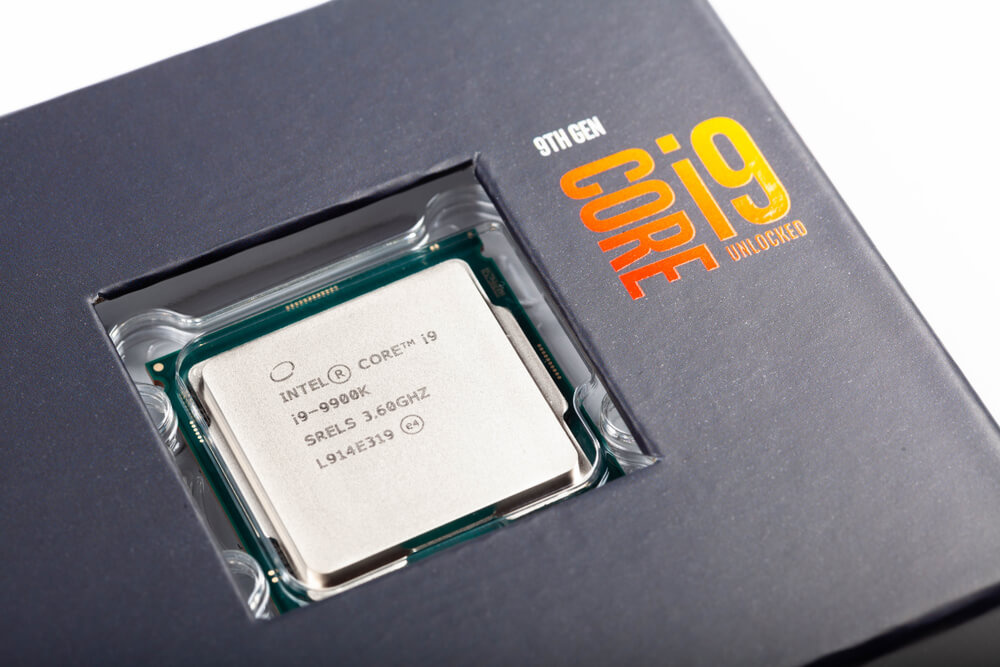Intel vs AMD. The feud to end all feuds. Debating the pros and cons of these two companies is a bit like comparing Harvard to Yale. You’re going to be fine with either, but students from both sides definitely have some strong opinions on which is better.
Get money for your damaged, used or new CPUs
That being said, just looking at raw performance and pricing, AMD is the clear winner in the desktop computer world, but things are more competitive in the server market.

Editor’s note: if you’re upgrading hardware soon and want to liquidate your leftover IT equipment, click here to sell CPUs.
Intel vs AMD Consumer Pricing
AMD is pretty difficult to beat in terms of pricing. Throw in overclocking, automatic overclocking software, quality bundled coolers(Intel’s have gotten some flak), AMD motherboard forward and backward compatibility, and you’ve got a pretty clear winner in AMD, especially with midrange options.
In terms of the actual cores and threads per dollar, lately AMD tends to offer better metrics in these categories, as well as faster PCIe 4.0.
| Head to Head Pricing | AMD | Intel |
|---|---|---|
| Threadripper vs Cascade Lake-X | $900- $3,750 | $800 – $1,000 ($2,999) |
| AMD Ryzen 9 vs Intel Core i9 | $434 – $739 | $459 – $505 |
| AMD Ryzen 7 vs Intel Core i7 | $294 -$339 | $300 – $370 |
| AMD Ryzen 5 vs Intel Core i5 | $149 – $249 | $125 – $200 |
Overclocking isn’t complimentary across the board with Intel, so you will get upcharged for it, and you will have to buy a reasonable cooler if you intend to use a K series chip. Stock AMD coolers are actually pretty good, and certainly functional for modest overclocking, which puts another mark in the AMD column. If you don’t care to overclock this might be less of a consideration though.
In budget options, the winner is a bit less clear. For example, Intel‘s i5 model the 9400F is actually pretty competitive for only about a hundred dollars.
On the luxury end, you wind up paying an extra chunk with Intel because of the necessary motherboard for K series CPUs. This is sort of par for the course with Intel, as they aren’t known for great forward compatibility.
For one quite candid example of the value difference, the i9-9920X is over $1000 and the Ryzen 9 3900X is comparable yet less than $500
Given all of these considerations. AMD wins on value.
Intel vs AMD Gaming Performance
For the upper end of performance, Intel’s i9 offerings currently outperform AMD‘s higher end chips.
That being said, the margins are pretty slim, and the GPU is often the bottleneck anyways.
On midrange options, Intel wins with less threaded situations like with most games.
However, AMD wins pretty much everywhere else, especially if you’ll have a bunch of other applications running while you’re gaming.
Speaking of:
AMD vs Intel General Purpose Performance and Longevity
AMD beats Intel on PCIe 4.0 as opposed to PCIe 3.0.
AMD, in general, handily beats intel on cores and caching. This means that for almost every general purpose application, AMD provides the superior product.
As a mid range example, The Intel 8700K has 6 cores/12 threads, 3.7Ghz base, 4.7Ghz turbo for ~$350. The AMD Ryzen 7 3800x has 8 cores, 16 threads, 3.9Ghz base up to 4.5Ghz XFR but for only $280.
Additionally, as stated earlier, Intel is historically worse about forward/backwards compatibility, and so resale value tends to be retained with AMDs. For these reasons, AMD wins on the longevity front.
Intel Vs AMD for Enterprise Use
Market Share Gridlock
Obviously Intel has the lion’s share in the enterprise realm, and has had it for a long time now.
In heavily virtualized environments, mixing Intel and AMD chips can bring on serious compatibility issues.
Because of the growth of virtualization, Intel‘s market share lead is actually a very significant boon.
They have influence which extends to things like being certified by VMware even when AMD wasn’t, or being pushed by OEMs like HPE.
Longstanding Peputation
As the saying goes, you won’t get fired for buying Intel. Probably.
When data centers first exploded in use, Intel was there. When the cloud became the norm, Intel was there. When distributed computing and edge nodes became ubiquitous, Intel was there.
AMD has not been the stalwart figure Intel has.
In fact, past generations left much to be desired and it has hurt AMD’s reputation among system admins.
Even after the very deserved praise AMD has been getting recently, they’ve still only clawed out fractions of percentage points in market share.
Pricing: Per Core and Single Thread Performance
Because vendor pricing models mean paying per core in terms of licensing, it’s more cost-effective to prioritize single thread chip performance.
Intel wins on this front as before. With that said, AMDs latest EPYC 2 has exceeded expectations for performance per dollar in other use cases where this payment model isn’t prohibitive.
Even on benchmarking metrics that aren’t kind to AMD, they’ve done very well recently. For more specific information you can always check CPU benchmarking references online.
Range of Options
There’s not really any debate that Intel has the widest range of server offerings by a large margin.
Even if a corporation wanted to replace all of its intel chips overnight, AMD doesn’t offer chips for every motherboard as Intel does.
Intel wins in this category.
If you are upgrading your CPUs soon or have IT equipment to liquidate, feel free to fill out a form below and get a quick quote!